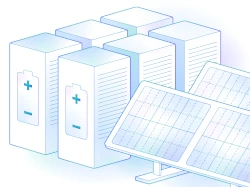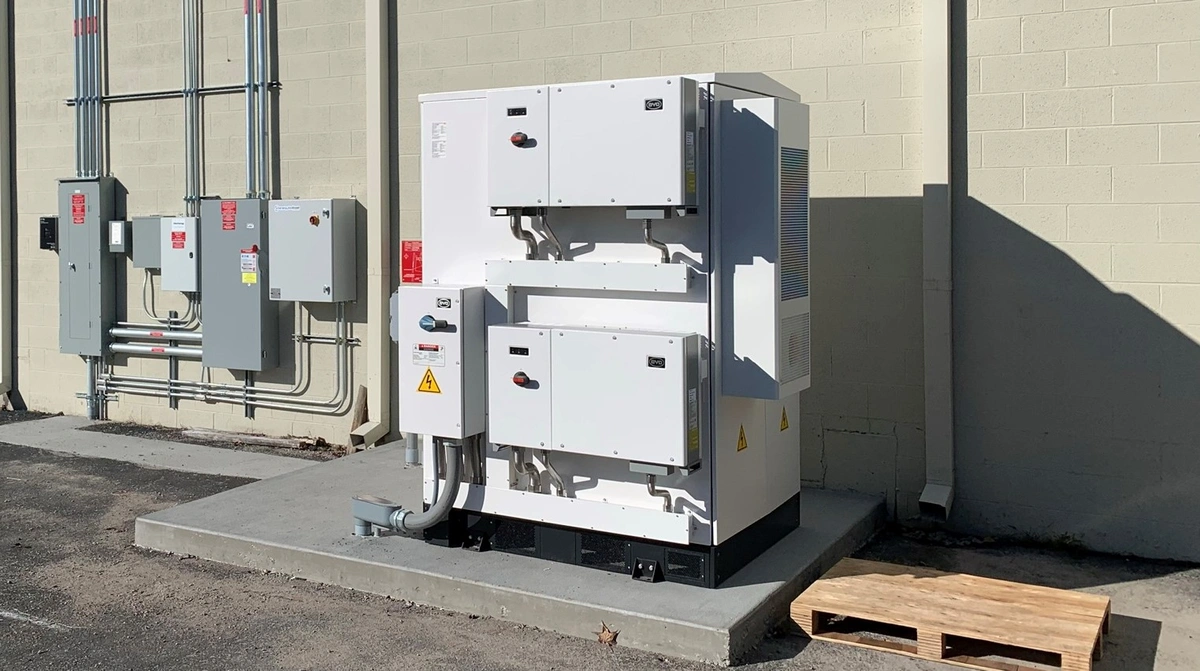The New Jersey Board of Public Utilities (BPU) released a Straw Proposal on September 29, 2022, establishing the state’s first-ever incentive focused on stand-alone energy storage. Available to all types of energy storage projects, the New Jersey Storage Incentive Program (NJ SIP) will offer participants two forms of compensation for the installation of an energy storage system (ESS), a fixed incentive amount paid annually and a performance-based incentive. While in the early legislative stages, the BPU suggests that the new incentive program will be made available by mid-2023.
Background
The State of New Jersey (NJ) has set one of the most ambitious energy storage targets in the nation, with 2,000 megawatts (MW) of storage installed by 2030. The Clean Energy Act, signed by Governor Phil Murphy in 2018, also included an interim goal of 600 MW of installed energy storage by 2021, which the state did not meet. New Jersey currently has approximately 497 MW of storage resources installed, most of which is in the form of a single 420 MW pumped-storage hydroelectric facility, the Yards Creek Generating Station, which was made operational back in 1965.
Significant investment in energy storage resources is necessary for NJ to achieve the clean energy targets established through the state’s Renewable Portfolio Standard (RPS). Updated through the Clean Energy Act, New Jersey’s RPS mandates that each electric power supplier and basic generation service provider in the state must procure 35% of the electricity it sells from qualified renewable energy resources by 2025, increasing to 50% by 2030. Furthermore, in 2020 Governor Murphy unveiled the state’s Energy Master Plan, outlining seven key strategies to reach the Administration’s bold goal of 100% clean energy, or carbon-neutral electricity generation, by 2050.
On September 29, 2022, the New Jersey BPU released a Straw Proposal on the matter ofThe New Jersey Energy Storage Incentive Program (NJ SIP), an entirely new incentive program modeled after the Board’sCompetitive Solar Incentive (CSI) Program proposed earlier this year. The SIP is New Jersey’s first-ever initiative focused on incentivizing stand-alone energy storage systems (ESS). We have outlined the key program features included in the Board’s Straw Proposal, which is still in the legislative review stage.
Program Details
- Will be available to energy storage projects placed into service after the effective date of the Board Order establishing the program.
- Available to both “distributed” behind-the-meter (BTM) and “grid supply” front-of-the-meter (FTM) energy storage projects.
- Comprised of two types of incentives – a fixed incentive paid annually for a term of years (proposed at 10-15 years) and a performance-based incentive (PBI).
- The fixed incentive will be measured in $ per kilowatt hour ($/kWh) of storage capacity.
- Contingent on the storage resource remaining online and available for dispatch 95% of all hours (may not be applicable to BTM projects).
- A declining block structure will be used for the fixed incentive with the initial level intended to cover approximately 30% of the total project cost.
- For the first-year incentive block the Board is suggesting 10 annual payments of $20/kWh for the grid supply program and $40/kWh for the distributed program.
- A recommended decrease of $2/kWh between each block.
- First-year allocation of 40 MW, broken down as follows:
- Less specifics have been proposed regarding the performance-based incentive.
- For FTM installations, payment will be based on the number of carbon emissions abated.
- For BTM installations, payment will be in $/kWh form and based on the discharging of power into the distribution system when called upon by the participant’s Electric Distribution Company (EDC) during specific performance hours (e.g., summer peak of 3 pm – 7 pm on weekdays).
- The Board proposes that each EDC be provided the flexibility to establish its own hours and incentive payment.
- The Board is proposing that distributed storage participants do not incur penalties for non-performance.
- A non-refundable bid participation fee of $1,000 per MW has been proposed.
- Storage developers must select between the NJ SIP and CSI Program; participation in both is prohibited. Participants are eligible to take advantage of the Federal Investment Tax Credit (ITC) under thestandalone storage provision of the Inflation Reduction Act (IRA).
What’s Next?
The NJ SIP is structured in resemblance to energy storage incentive programs in other states that have proven successful at stimulating market participation, likeCalifornia’s Self-Generation Incentive Program andConnecticut’s Energy Storage Solutions Program. Both the CSI program and NJ SIP are being designed to meet the goal set forth in the Clean Energy Act, equally contributing 1,000 MW of four-hour storage capacity each between 2022 and 2030.
The Straw Proposal suggests the first block of the NJ SIP opening in mid-2023. The BPU is seeking comments on many program elements, including what the initial incentive amounts should be. Stakeholder meetings are currently scheduled to take place virtually on 10/21, 11/4, and 11/14, with public comments filed underDocket No. QO22080540 no later than 5 p.m. EST on December 12, 2022.


